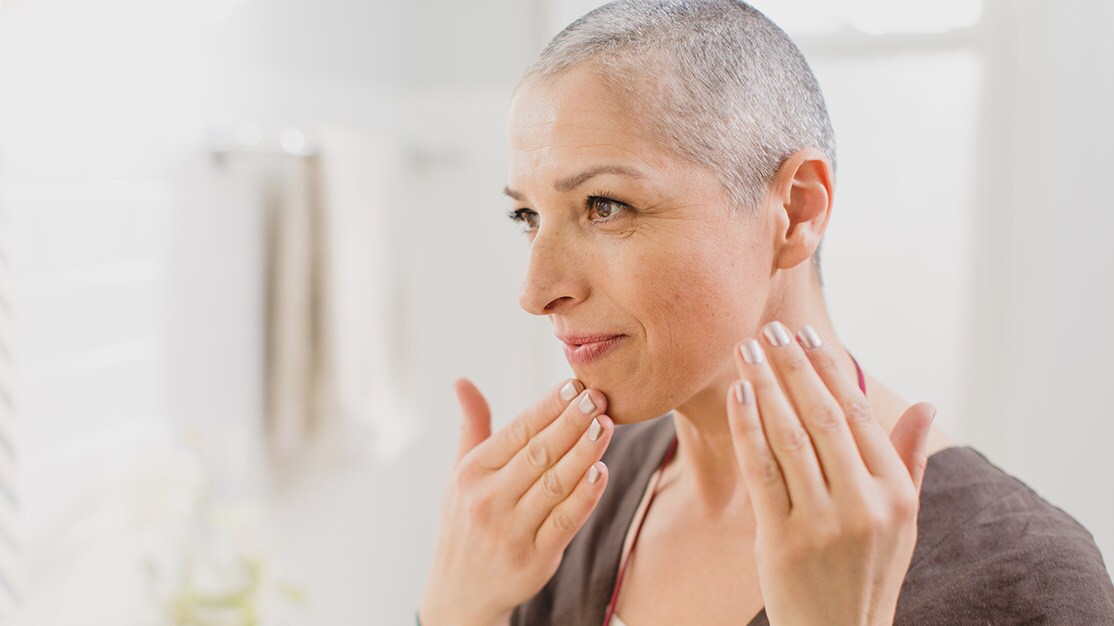Cancer treatment can be a challenging experience, and it can take a toll on your skin. Many cancer treatments, such as chemotherapy and radiation therapy, can cause skin problems such as dryness, itching, and redness.
It’s essential to take care of your skin during this time to prevent further discomfort and irritation. In this context, we’ve put together five tips for healthy skin during cancer treatment that can help you maintain healthy and comfortable skin.
By following these tips, you can reduce the risk of skin problems and maintain a healthy appearance, which can boost your overall well-being and confidence during this difficult time.
Table of Contents
Keep your skin moisturized
Cancer treatment can cause a number of skin-related side effects, including dryness, itching, and flakiness. Chemotherapy and radiation therapy can damage the skin cells, causing the skin to become dry, rough, and irritated. This can lead to discomfort and even pain, making it important to take care of your skin during cancer treatment.
One way to prevent dry, itchy, and flaky skin during cancer treatment is to use a fragrance-free moisturizer regularly. Moisturizers can help to hydrate and nourish the skin, keeping it soft, supple, and healthy. By applying a moisturizer regularly, you can prevent your skin from drying out and becoming irritated.
When choosing a moisturizer for cancer treatment, it’s important to look for products that are free of alcohol and other harsh chemicals that can irritate your skin. Alcohol can be drying to the skin, which is the opposite of what you want when trying to prevent dryness. Additionally, some chemicals found in skincare products can cause allergic reactions or further irritation to already sensitive skin. Therefore, it is best to look for moisturizers that are specifically designed for sensitive skin or cancer patients.
A fragrance-free moisturizer is also a good choice because fragrances can be irritating to some people’s skin, causing allergic reactions or further discomfort. Fragrances in skincare products may also contain harsh chemicals that can dry out the skin, exacerbating the issue further.
Protect your skin from the sun
Protecting your skin from the sun is an important part of caring for your skin during cancer treatment. Many cancer treatments can make your skin more sensitive to sunlight, and exposure to UV rays can increase the risk of skin damage, sunburn, and skin cancer. Therefore, it’s essential to take steps to protect your skin from the sun’s harmful rays.
One of the most effective ways to protect your skin from the sun is to use a broad-spectrum sunscreen with an SPF of 30 or higher. Broad-spectrum sunscreens protect your skin from both UVA and UVB rays, which are the two types of rays that can cause skin damage. An SPF of 30 or higher is recommended for most people, as it provides adequate protection against UV rays. It’s important to apply sunscreen liberally and to reapply it every two hours or after swimming or sweating.
In addition to sunscreen, wearing protective clothing can also help to protect your skin from the sun. A hat with a wide brim can shade your face, neck, and ears, while long-sleeved shirts and pants can protect your arms and legs. Look for clothing made from lightweight and breathable fabrics to keep you cool and comfortable.
It’s also important to avoid being in the sun during peak hours when the sun’s rays are strongest. This typically occurs between 10 a.m. and 4 p.m. It’s best to stay in the shade during these hours, especially if you’re outside for an extended period of time.
Finally, if you’re undergoing cancer treatment, it’s important to discuss sun protection with your healthcare team. They can provide additional recommendations based on your individual situation and the type of cancer treatment you’re receiving. By taking steps to protect your skin from the sun, you can help to prevent skin damage and maintain healthy skin throughout your cancer journey.
Avoid harsh products
During cancer treatment, it’s common for the skin to become more sensitive and fragile. This is due to the effects of chemotherapy, radiation therapy, or other cancer treatments that can damage the skin cells, making them more vulnerable to irritation and injury. Using harsh soaps, lotions, or other skincare products can exacerbate these skin sensitivities and lead to further discomfort, irritation, and even pain.
To care for your skin during cancer treatment, it’s important to avoid using harsh products that can irritate your skin. Instead, choose gentle products that are specifically designed for sensitive skin. These products are formulated to be less abrasive and less likely to cause irritation, making them ideal for use during cancer treatment.
When choosing skincare products, look for labels that say “gentle,” “fragrance-free,” “hypoallergenic,” or “for sensitive skin.” These products are typically formulated without harsh chemicals or irritants that can further damage your skin. Some people may also find that natural or organic skincare products are gentler on their skin than products that contain synthetic ingredients.
When washing your skin, choose a gentle, fragrance-free soap or body wash. Avoid using hot water, which can dry out the skin and worsen irritation. Instead, use lukewarm water and pat your skin dry with a soft towel, rather than rubbing it.
When choosing a lotion or moisturizer, look for products that are specifically designed for sensitive skin. These products are often formulated with gentle, non-irritating ingredients that can help to hydrate and soothe your skin. Be sure to apply moisturizer after bathing or showering to help lock in moisture.
Stay hydrated
During cancer treatment, staying hydrated is important for your overall health, as well as for the health of your skin. Dehydration can lead to a range of skin problems, including dryness, itching, and flaking, which can be uncomfortable and irritating.
To prevent these skin problems, it’s important to aim for at least 8 cups of water per day. However, the amount of water you need may vary depending on your individual needs, the type of cancer treatment you’re receiving, and other factors, such as your age, weight, and level of physical activity.
In addition to drinking water, you can also stay hydrated by eating foods with a high water content, such as fruits and vegetables. Cucumbers, watermelon, strawberries, and spinach are all excellent sources of hydration.
It’s also important to avoid drinks that can dehydrate you, such as alcohol and caffeinated beverages like coffee and tea. These drinks can increase your urine output, which can lead to dehydration.
If you’re having trouble drinking enough water, try carrying a water bottle with you throughout the day to remind you to stay hydrated. You can also add flavor to your water by infusing it with fresh fruit, such as lemons or strawberries, or by drinking herbal teas.
Finally, if you’re experiencing side effects from cancer treatment, such as nausea or vomiting, it’s important to talk to your healthcare team about ways to manage these symptoms. These side effects can make it difficult to stay hydrated, but your healthcare team can provide recommendations and support to help you stay on track.
Be gentle with your skin
During cancer treatment, your skin can become more sensitive and prone to irritation. This can make it difficult to care for your skin, as even gentle actions such as washing or drying can cause discomfort and irritation. To care for your skin during this time, it’s important to be gentle and avoid scrubbing or rubbing your skin too hard.
When washing your skin, use a gentle, fragrance-free soap or body wash. Avoid using hot water, which can further dry out your skin and worsen irritation. Instead, use lukewarm water and be gentle when washing, avoiding harsh scrubbing or rubbing.
After bathing or showering, it’s important to pat your skin dry rather than rubbing it. Rubbing can further irritate the skin and exacerbate dryness and flakiness. Use a soft towel or cloth and gently pat your skin dry, being careful not to rub or tug.
If you’re experiencing skin sensitivity or irritation during cancer treatment, it’s important to talk to your healthcare team about ways to manage these symptoms. They may be able to recommend specific skincare products or techniques that can help to soothe and calm your skin.
In conclusion, cancer treatment can have a significant impact on your skin, causing discomfort and irritation. However, by following the five tips for healthy skin during cancer treatment, you can help to maintain healthy and comfortable skin.
These tips include protecting your skin from the sun, using gentle skincare products, staying hydrated, avoiding harsh scrubbing or rubbing, and using fragrance-free moisturizers. By taking care of your skin during this challenging time, you can reduce the risk of skin problems and maintain a healthy appearance, which can boost your overall well-being and confidence.
Remember to talk to your healthcare team about any skin concerns you may have, as they may be able to recommend specific skincare products or techniques to help manage your symptoms.






